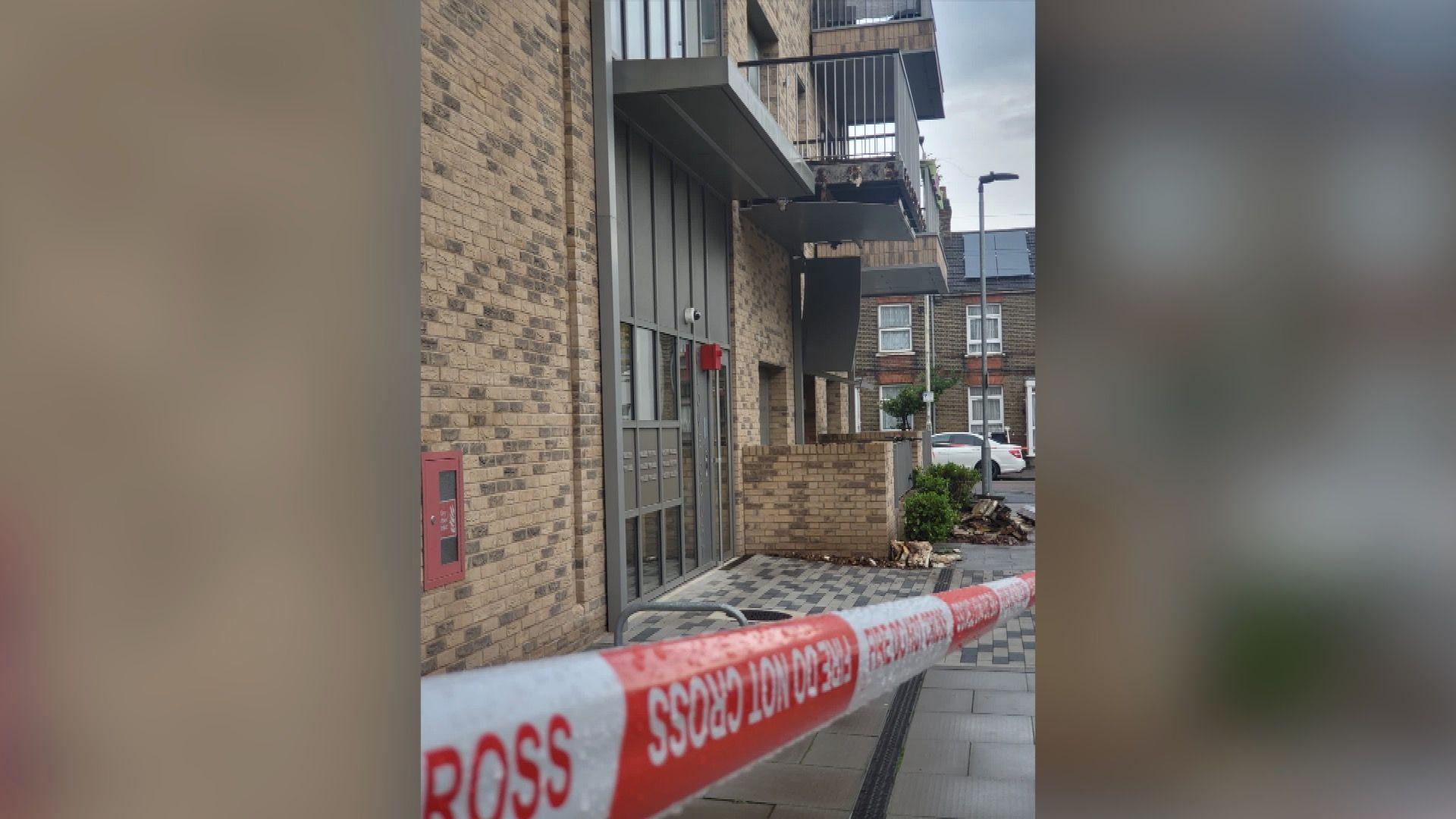High street gambling venues going unchecked, BBC finds
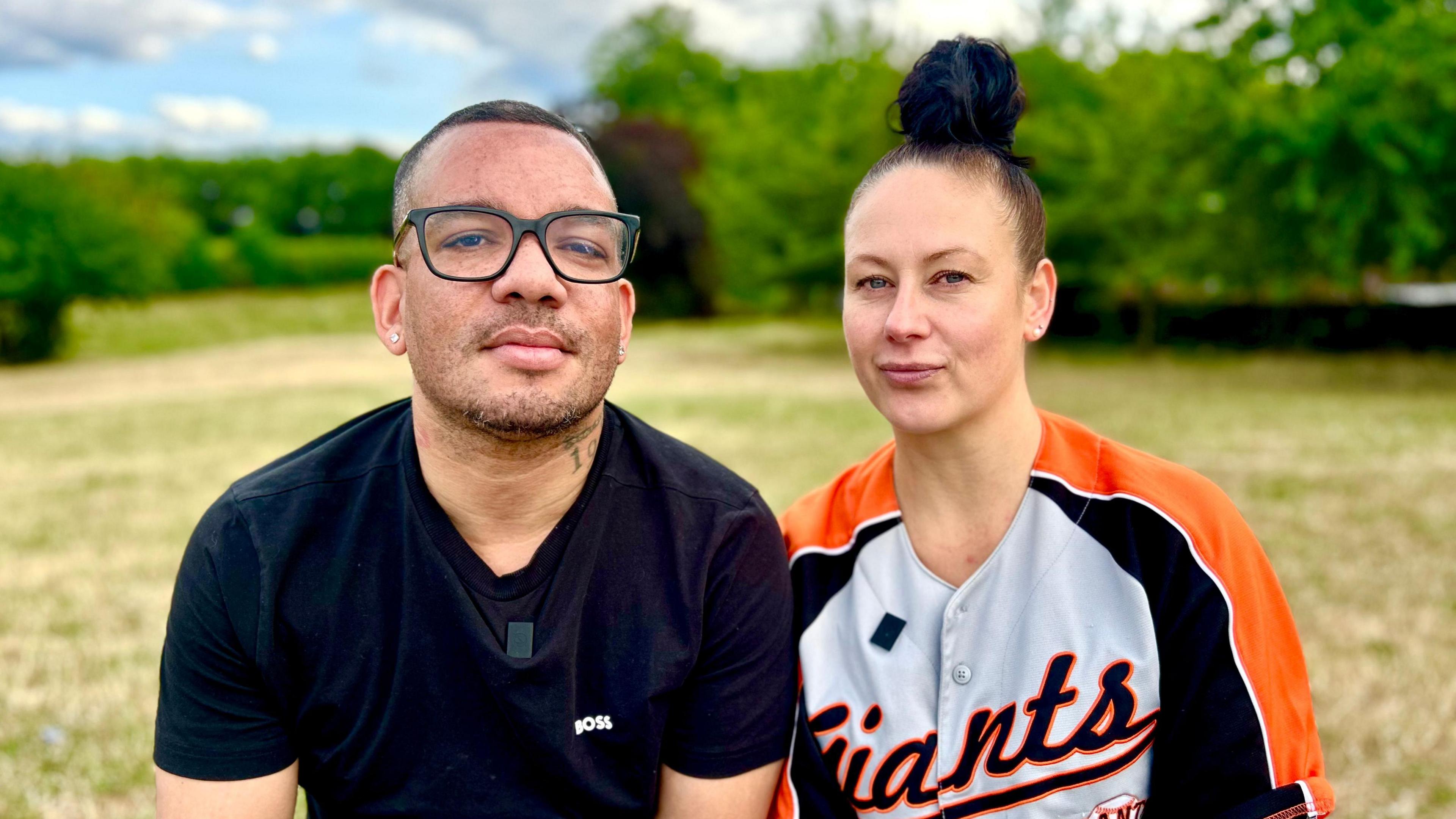
Kester (l) and Zoe lost their London home as a result of problem gambling
- Published
More than a third of councils in England and Wales have not inspected a single licensed gambling establishment in the past year, a BBC investigation has found, leading to calls for better monitoring of them, in particular slot-machine arcades.
The Social Market Foundation think tank has claimed these venues - also known as adult gaming centres (AGCs) - are "sinkholes on the high street" extracting money from some of the poorest people and need more regulation.
Over 130 councils had not carried out inspections, which the regulator, the Gambling Commission, said would mean rule-breaking on the ground would be more difficult to identify.
The Local Government Association (LGA) said councils struggled to fund proactive inspections and the group which represents AGCs said its members operated responsibly and denied targeting vulnerable communities.
AGCs have seen a rise in their Gross Gambling Yield , external- stakes less winnings paid out - further heightening concerns from councils and MPs and think tanks who already believe high street gambling has a detrimental effect on communities.
Dr James Noyes from the cross-party think tank The Social Market Foundation described them as "sink holes on the high street", adding: "They extract money often from some of the poorest people in the country."
The senior research fellow added that AGCs "are often clustered in areas of high deprivation".
He wants the government, the regulator and local councils to improve monitoring by working more closely together.
"We need to have ultimate responsibility made clearer," he added.
Earlier this year, the think tank was commissioned by Brent Council to explore how local authorities could better understand gambling-related harm and tackle it more effectively.
The British Amusement Catering Trades Association (Bacta) which represents AGCs, rejected the suggestion that operators deliberately targeted vulnerable communities.
It said: "Low-stake machines in community venues are among the most heavily regulated forms of play anywhere in the world."
It also said AGCs were "safe, welcoming, and alcohol-free venues offering low-stake gaming in a highly controlled environment".
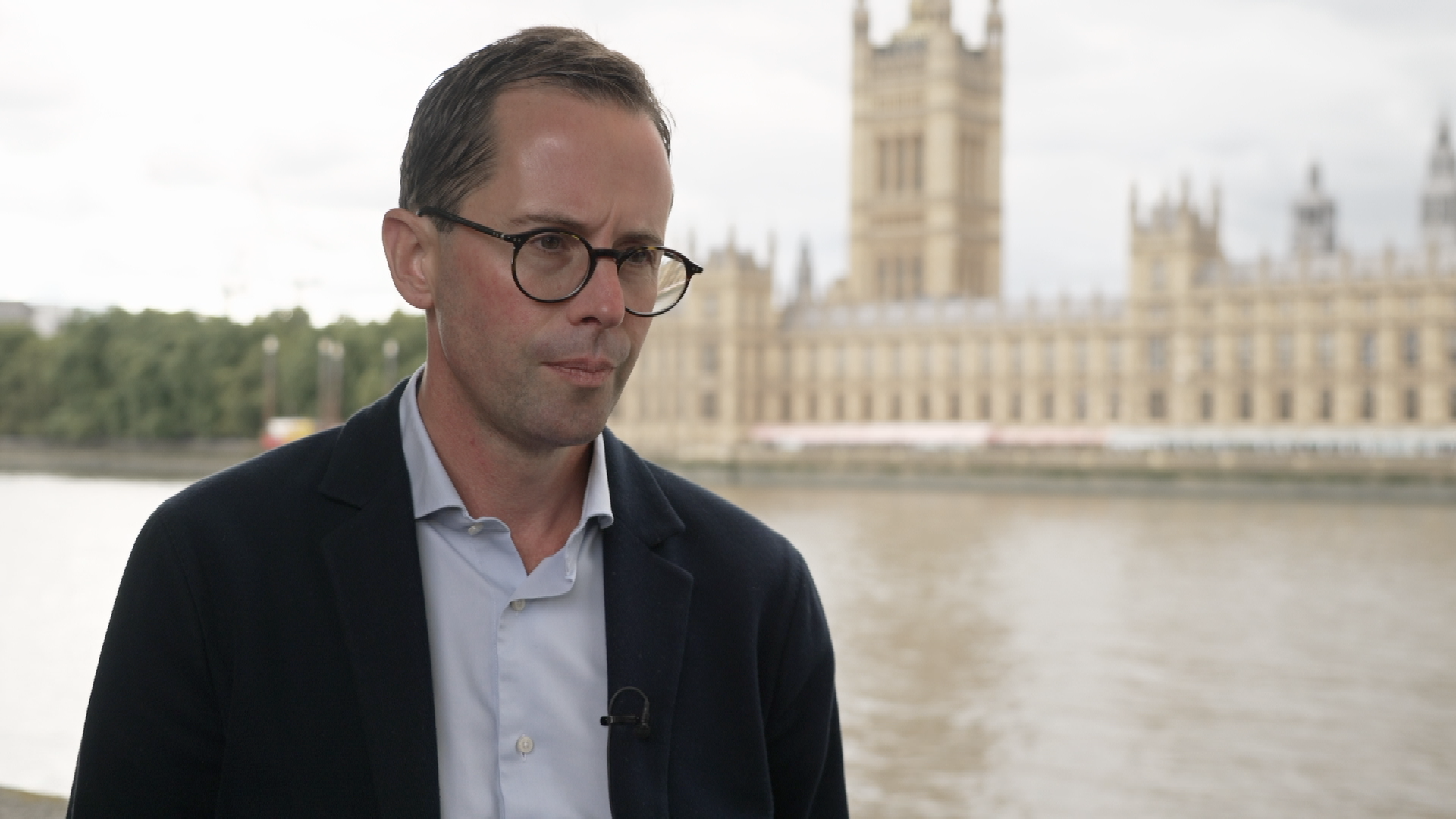
Dr James Noyes says there needs to be more effective regulation on gambling venues
Using data compiled from the Gambling Commission and Freedom of Information requests to local authorities, the BBC found 43% councils in England and Wales had not conducted any checks on high street gambling premises in the past year.
Of the 317 English and Welsh licensing authorities with at least one gambling premises within their jurisdiction, 135 reported zero inspections in 2024-25.
Three of them dispute the figures although they were their official submissions made to the regulator.
'Breaks families'
Inspectors are, among other things, meant to check for the permitted number and ratio of B3 slot machines, external, which offer up to £500 in prize money.
Betting shops - licensed to handle bets on horse races and other sports events - are only permitted to have a total of four B3 electronic gaming machines but in an adult gaming centre up to 20% of them can be this type of machine.
Research suggests, external these machines are linked to the highest levels of gambling harm and their takings in adult gaming centres have soared in recent years.
Their Gross Gambling Yield, external in 2023-24 was almost £463m, 76% more than in 2021-22 figure.
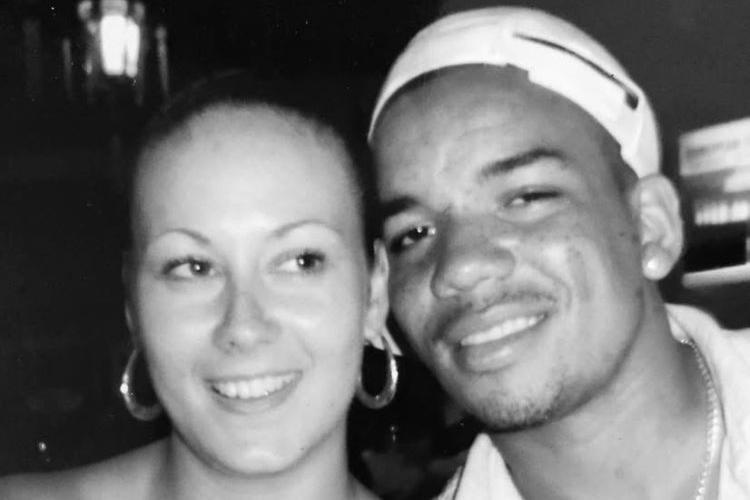
Zoe and Kester, who met on holiday in 2005, say it was "love at first sight"
One of those who knows the dangers of problem gambling all too well is Zoe who, after the birth of their child, discovered money had mysteriously gone missing from her bank account.
After reviewing CCTV footage supplied by her bank, it emerged the cash had been taken by her husband Kester, 43, who was addicted to gambling, largely in high street bookies, rather than AGCs.
It was an addiction that eventually cost the couple about £250,000, their home and their marriage.
"I forgave him multiple times," Zoe said. "But it breaks families, it breaks homes."
If you have been affected by any of the issues in this story, BBC Actionline has help and advice on addiction and gambling.
The couple, live in Harlesden, in the London borough of Brent, nicknamed by some as the "Las Vegas of London" because it has one of the highest concentrations of licensed gambling premises in the country.
'It's always on an adult to take accountability for their actions," Zoe said. "However, I also see the medical side of an addiction.
"Whether it's alcohol, drugs or gambling an addiction is an addiction. Kester has tried to get help.
"Yes it's a personal choice and at the time you take that choice you know it could turn into an addiction - but it's like that with anything."
Zoe and Kester want urgent action to ensure better monitoring of all gambling establishments and fewer opening on the high streets.
Brent Council carried out 21 inspections last year and only found a few examples of non-compliance over the past five years.
It is one of dozens of councils calling on the government to make it easier to reject licence applications for gambling premises so it can control the numbers and better protect deprived communities, external.
Bacta said removing current legislation "would risk blocking modest investment in high streets and coastal towns – often in communities that most need jobs and regeneration – and it would also mean taking away low-stake, closely supervised entertainment from the many people who enjoy it safely."
The Gambling Commission and local authorities share responsibility for regulating gambling premises.
The commission has national oversight, but councils in England and Wales receive licence fees paid by gambling operators to fund inspections.
However, there are no targets stating how many, or how often, venues should be inspected.
When inspections do happen, councils are meant to ensure venues comply with their licence, external conditions.
The checks include ensuring vulnerable people are protected and not allowing children in and the number and ratio of B3 machines.
Breaches should be flagged to the regulator, the Gambling Commission.

The gambling industry said it is a vital contributor to the UK economy
Conservative MP Sir Iain Duncan Smith, chairman of the All-Party Parliamentary Group for gambling reform, said AGCs were "proliferating on our high streets, particularly in our most deprived communities, expanding the number of easily accessible and highly addictive B3 machines".
He said regulation of those machines was "totally inadequate".
He claimed the commission "urgently needed" to tighten licensing codes and said more checks were essential.
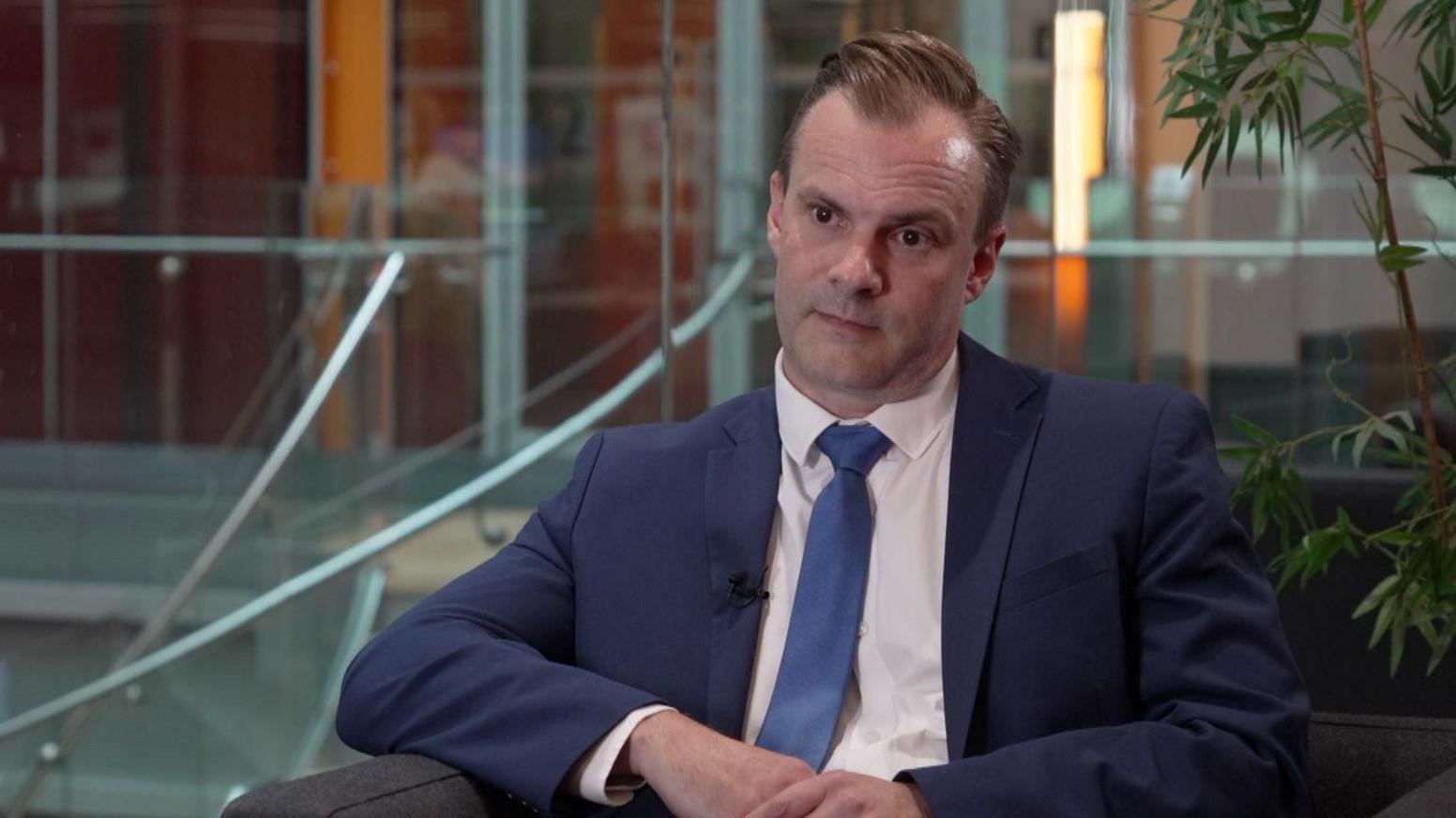
Tim Miller from the Gambling Commission says the commission is "effective"
But Tim Miller, executive director of the Gambling Commission, said the current legislation was very clear about his organisation's role describing it as "an effective regulator".
He did accept there were "gaps within the system" in terms of its "understanding at the local level" and urged local authorities to do "those inspections that they're funded to do".
Get in touch
Do you have a story to share with the BBC London investigations team in confidence?
Mr Miller also claimed some councils were "not taking their responsibilities seriously enough" - a suggestion rejected by the LGA.
The LGA said: "Councils take their responsibilities around gambling licensing seriously and carry out inspections based on risk and local intelligence."
It added that councils had both a wide range of regulatory duties and "significant financial pressures" which limited their ability to carry out "proactive inspections".
The LGA also said it welcomed government plans , externalto give new powers to councils to block gambling shops on high streets and strengthen their regulation and inspection powers.
Poorer towns have the most betting shops - study
- Published23 August 2021
High streets 'flooded' with gambling machines
- Published14 September
Brown urges Reeves to hike gambling taxes at Budget
- Published7 August
The government is looking to introduce assessments which would allow councils to reject new gambling licence applications based on the cumulative impact of the number or density of these premises in a local area.
It is also considering raising the cap on licence fees so councils would have more money ring-fenced for inspections.
As for Kester, he has sought help for his gambling addiction and urged others in a similar predicament to do the same.
"If there's something becoming a pattern, every time you get paid, it will get worse," he said.
"If you think it's wrong, then it's wrong. Speak to someone," he said.
"I've lost a lot. I had most things and then it crumbled."
Additional reporting by Jonathan Fagg, BBC England Data Unit.
Listen to the best of BBC Radio London on Sounds and follow BBC London on Facebook, external, X, external and Instagram, external. Send your story ideas to hello.bbclondon@bbc.co.uk, external
More from the London and East investigations team
- Published30 September
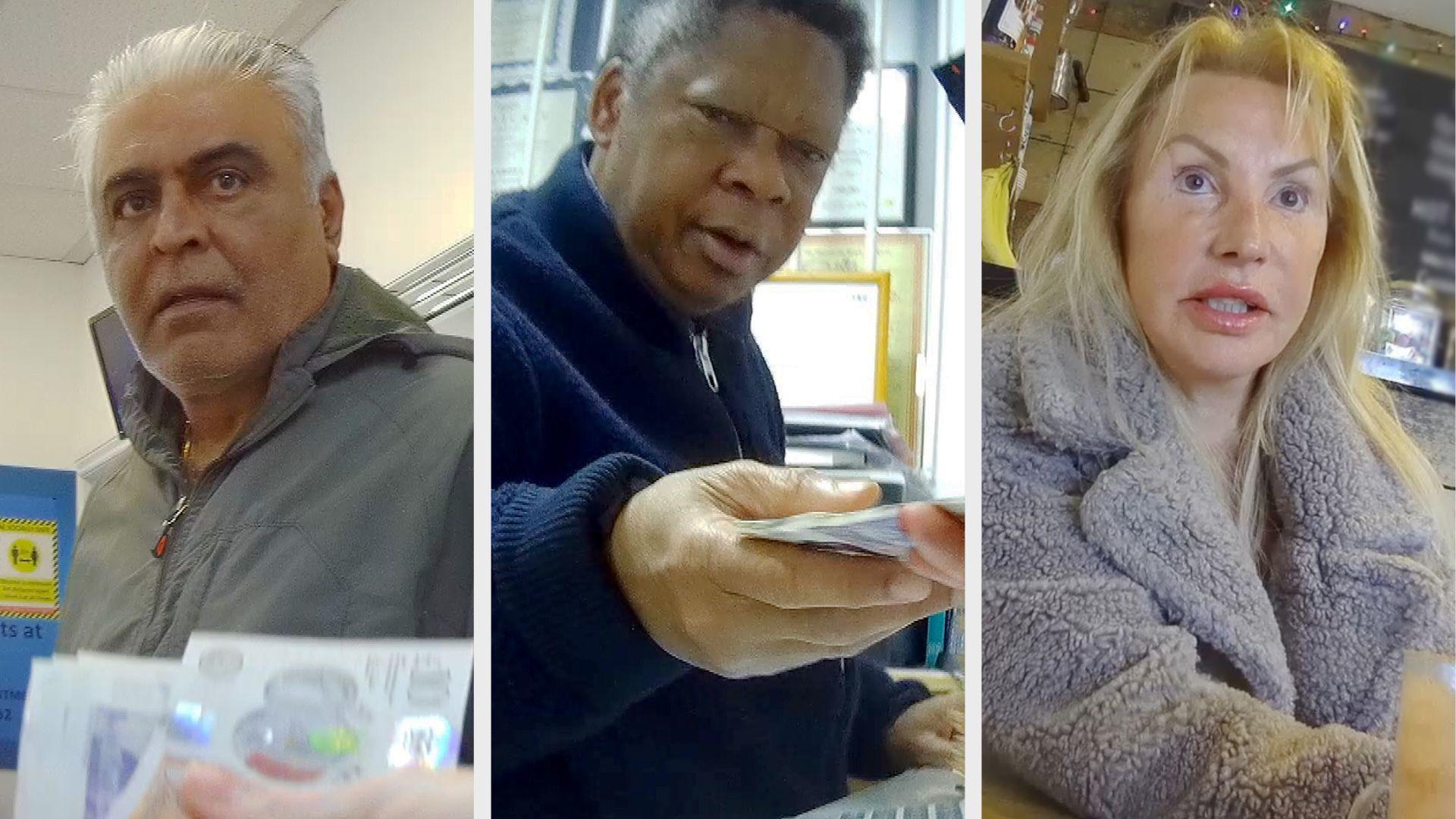
- Published17 September
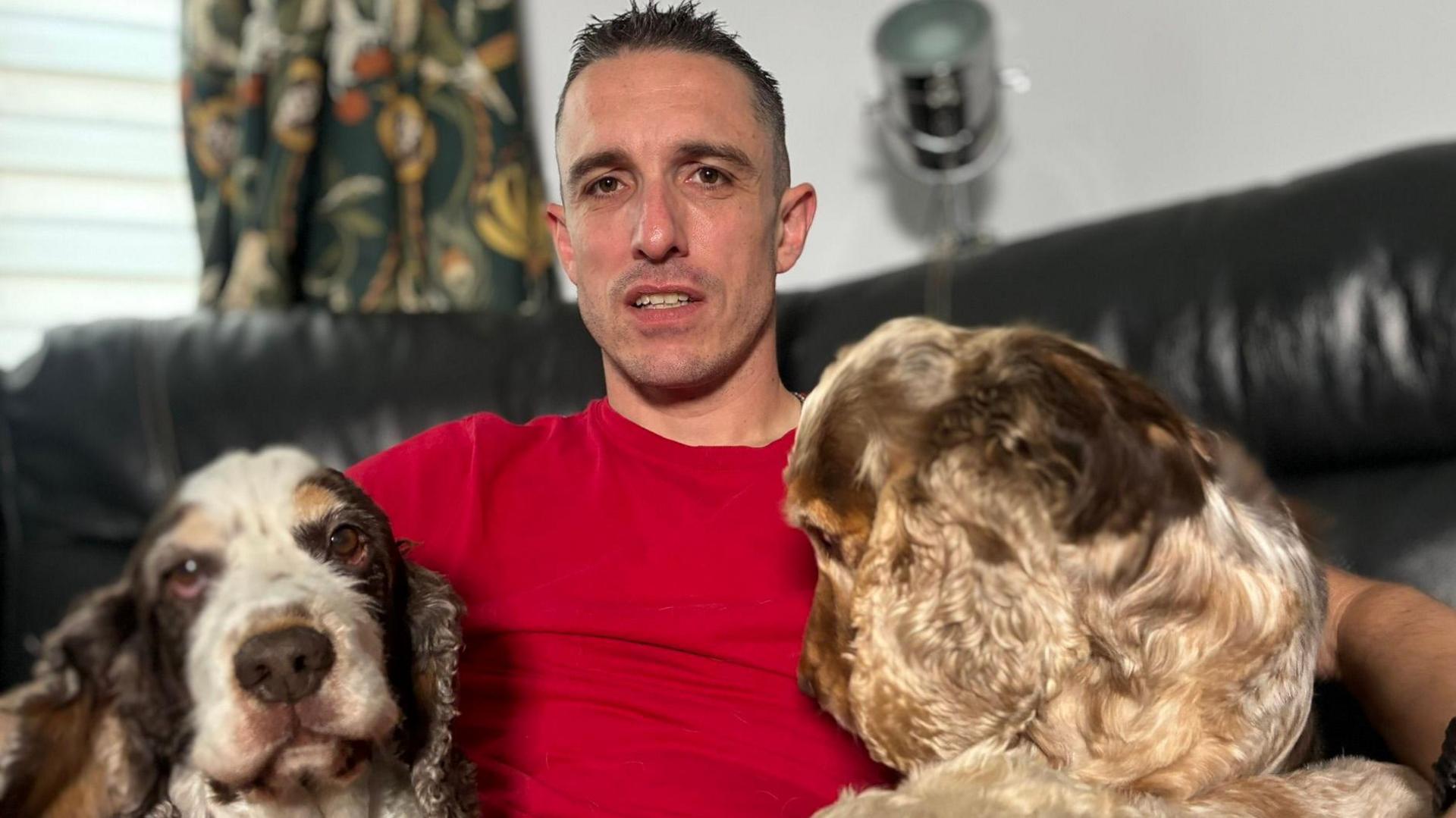
- Published25 June
